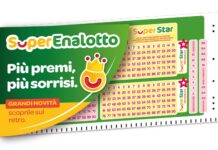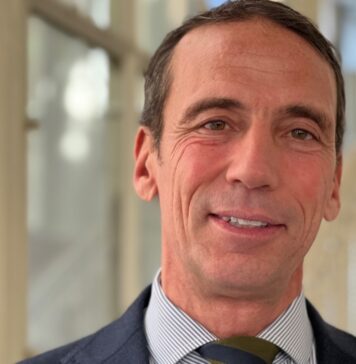
(Jamma) Rationalize the taxation of the legal gaming sector, encourage games that guarantee employment and greater possibilities for carrying out effective controls and align the premiums applied to similar games, with particular reference to premiums applied to the game of Lotto and to that of the Superenalotto. This is what the Pd honorable Bobba and Anzaldi are asking in a parliamentary question presented yesterday to the Minister of Economy and Finance Fabrizio Saccomanni.
“Italy – declared Bobba – is the second country in the world for the diffusion of gambling with an overall turnover currently estimated at between 94 and 98 billion euros per year, while in 1990, two years after the transition from the management of the lotteries to the Aams, the turnover amounted to a total of 5,1 billion euros per year; it is expected that, in 2015, this being the case, the funding of the sector could be between 100 and 140 billion euro; against this progressive increase, between 2011 and 2012, according to the latest official data available, the State collected approximately 10 percent less than the previous year; between 1999 and 2009, gaming brought in an average of 4 percent of total indirect taxes to the treasury and, in absolute terms, contributed to the state coffers with an average of 9,2 billion euros a year . The collection deriving from gaming is made up of various items: a) the portion due to the Treasury; b) concession costs; c) distribution costs; d) the amount due to the former Autonomous Administration of State Monopolies; e) the so-called «pay out», i.e. the part that returns to the players in the form of winnings; the payout or redistribution percentage is the amount that, by law, any legalized gambling must redistribute in the form of winnings to players who bet their money, entering it into the circuit (the so-called pay-in), hoping to have a return (through the payout); the point of reference for detecting the impact of taxation is net inflows, not the overall turnover, on the basis of which in 2000, out of 14 billion euros, the State obtained 4,2 billion net, while in 2011, with a turnover of 80 billion, net inflows amounted to 18,4 billion euro, of which 8,7 went to the tax authorities. In ten years, Italians have multiplied the volume of money spent on gambling by six, but the net collection for the Treasury has only doubled, as the tax levy on the most widespread legal games of chance is lower than on the more popular games. known, but now less "loved" by the players; from a survey conducted by the No Slot movement, it appears that around 86 percent of small winnings remain in the circuit, through the so-called "replayed": a percentage of payouts which, as regards bar slot machines (the new slots or Awp) is set at 75 per cent on a basis of 140 games, while for video lotteries (or VLTs, the slot machines present in gaming halls) it is a minimum of 85 per cent, calculated however on 80 million of matches; Article 39 of Decree-Law No. 269 of 2003, paragraph 13, establishes that a single tax levy due from the subject to whom the Autonomous Administration of State Monopolies (AAMS) has issued the authorization. Lotto and the various lotteries bring about 650 million to the taxman. Bingo brings in 100 million and even less sports betting, stuck at about 80 million; starting from the slot machines (new slot), certified that, by law, 75 percent of the sums collected must be returned as winnings (the payout), 25 percent remains, of which 12,60 percent constitutes the PREU payment by the dealer. 0,8 percent is paid to the Concessionaire for the AAMS, and an amount agreed between the Concessionaire and the operator equal to 0,8 percent is paid to the Concessionaire as compensation. The difference between the remaining 25 percent and the paid 14,20 percent (equal to 10,80 percent) is divided 50 percent between the operator and the manager (5,40 percent each).
In 2012, of the more than 8 billion euros collected by the treasury from the gambling sector, 3,6 billion were collected from bar slot machines (as a percentage: 42 percent). In the meantime, however, in the absence of official data, but referring to what has been declared by the trade associations, the collection of stakes in these 10 months of 2013 would have suffered a drop of 7,5 percent compared to the same period of 2012 ; the tax levy on Vlt machines is 5 per cent on the amount played, while a 6 per cent surcharge is envisaged on the part of the winnings exceeding 500 euros. For the new slots (the one for bars) the tax levy is instead 12,50 percent on the amount played. Not to mention online gambling which, for some types of bet games, is 0,6 percent, while on the so-called poker cash game it has a rate of 20 percent.
In the opinion of the interrogators, a systematic approach to the problems of the sector cannot disregard a detailed analysis of the specific taxes that are applied to individual games, to tax revenues and the income deriving from them, with the aim of understanding what the fiscal policy interventions that can guarantee at least the maintenance of this tax revenue, while limiting as much as possible the damage deriving from gambling and the danger of a massive return to illegality that characterized this sector until the early years of the 2000; from this analysis, extremely complex, also given the rather copious and fragmentary legislation, some contradictory data emerge in the opinion of the questioners; in fact, if a game with a low "gambling rate" such as bingo which requires significant investments, played in easily controllable places and capable of guaranteeing interesting levels of employment, is taxed at 11 per cent, it is not easy to understand why highly aggressive online games that can be used from home 24 hours a day, which do not create employment and do not allow effective controls to prevent their use by minors, are only taxed at 24 percent;
if it is true that from the SuperEnalotto, the Treasury collects 44,7 percent of the revenue relating to the gaming sector, while from online casinos and poker cash it collects only 0,6 percent, The payout, i.e. the winnings of the players, in this second case it's very high, but it's balanced by very, very low odds of winning; always in the opinion of the questioners, it appears equally contradictory that the premium recognized to the Lottomatica (now Gtech), as licensee of the game lotto it is equal – on average – to 5,68 per cent, while to Sisal, the Superena concessionairelotto, game similar to that of lotto, a premium of an average 4,11 per cent is recognized”.
Honorable Bobba and Anzaldi asked to know “what concrete initiatives are intended to rationalize the taxation of the legal gaming sector, encourage games that guarantee employment and greater possibilities of carrying out effective controls; why there is no homogeneous taxation applied to the various games and in particular as regards video lotteries and if it is not considered necessary to take initiatives to homogenize the rates; if it is not deemed urgent to recover the tax revenue as soon as possible through initiatives aimed at aligning the premiums applied to similar games, with particular reference to the premiums applied to gambling Lotto and to that of the Superenalotto; if it is not considered appropriate to put in place as soon as possible any useful initiative to avoid a return to illegal gambling, a far from remote danger given the data emerging from specialized studies”.










